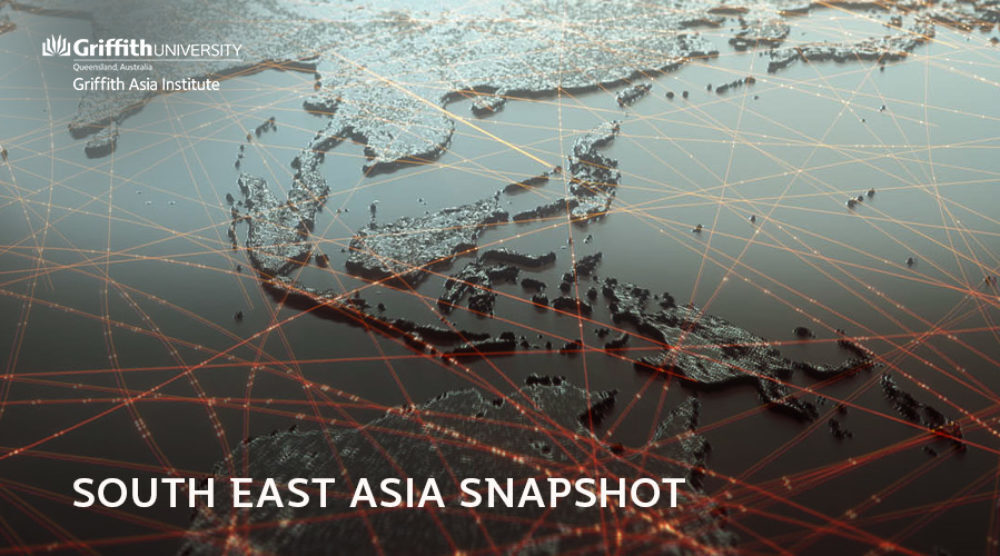Indonesia widens its edible oil export ban
As the world’s largest edible oil exporter, Indonesia announced that from 28 April 2022, it would further extend its export ban on crude palm oil, palm oil, and cooking oil to protect Indonesia’s domestic cooking oil price and local consumption.
The ban was made to ensure cooking oil prices would be USD 0.97 per liter. The latest ban by the Indonesian government is intended to put its people and stability of its domestic market consumption first. According to the Minister of Economic Affairs, the ban would last until the country’s cooking oil price fell below USD 0.97 per litre.
Indonesian President Joko Widodo has recognised the importance of exports for Indonesia’s economy, but has prioritised the domestic needs as more important. Other analysts believed that the restriction would raise the global edible oil prices as the supplies continue to be disrupted by climate change and the conflict between Russia and Ukraine. Traders were shocked by the recent announcement while the Indonesian farmers strongly endorsed the export ban, criticising the palm oil industry for neglecting their domestic demands.
The export restriction will undoubtedly trigger the rise of global edible oil prices which India, China, Pakistan, and the EU would see as major importers of the commodity. However, hopes remain high that this is, as stated by the President, a temporary measure, not a long-term policy.
Marcos Jr refuses a debate challenge prior to the presidential polls
On 29 April 2022, Philippines Presidential candidate Ferdinand Marcos Jr, who is currently the leading candidate in the Philippines presidential poll, rejected a one-on-one debate with his closest rival, Leni Robredo ahead of the May 9th presidential election.
Marcos Jr. also rejected to participate in a debate hosted by CNN Philippines in late February and rarely allowed any media interviews. He often neglected questions from journalists during his rallies. Taken from his 2016 vice-presidential race experience, the leading candidate sought to avoid being questioned about his father’s record of crime and violence which could sway the result of the upcoming election.
His rival publicly invited Marcos Jr to a debate as they believed the Philippines deserved a chance to ask him questions on his controversies. Marcos’ spokesperson expressed the impossibility of the debate and accused the challenge as negative campaigning. Others believed the rejection of the debate is Marcos’ way of hiding his lack of knowledge on issues and policies. Others have shifted the focus of this debate toward Pacquiao’s optimism about his electoral victory even in Marcos’ stronghold—Tacloban City.
Marcos’s refusal reveals his intention of avoiding any discussion issues that could shift the frontrunner’s result in the upcoming election. His opponents will continue to use his past against him to remind the public of the Marcos reign and potential dynastic challenges.
Malaysia proposes informal ASEAN-Myanmar engagement
On 1 May, Malay Foreign Minister Datuk Seri Saifuddin Abdullah said Malaysia proposed an informal engagement with Myanmar’s National Unity Government (NUG) and ASEAN. The NUG was elected by the Burmese but was ousted by the junta last year.
With the lack of progress in the ASEAN five-point consensus, the engagement was proposed to push for a solution to the political crisis in Myanmar. Importantly, this move is not made to legitimse the ousted government, but to help provide assistance, to the people of Myanmar. This request is one of the three proposals Malaysia is proposing to ASEAN. The others are to double the humanitarian assistance to Myanmar and to empower the role of the ASEAN special envoy.
The junta has responded negatively to the engagement plan as it believed it would be reckless to engage with the so-called “terrorist group”. Others believed the proposal lacks support, especially from mainland Southeast Asian states as it would counter ASEAN’s non-intervention principle.
The plan demonstrates Malaysia’s frustration with the lack of progress of the five-point consensus by the junta. The negative response from the junta suggests that they are unwilling to accept this type of proposal for engagement, regardless of the intention.
Cambodian minister seeks more in-person time with Biden and ASEAN leaders to improve ties
Cambodian Minister Kao Kim Hourn has said in an interview that the United States President Joe Biden should give more one-on-one meeting with ASEAN leaders during the upcoming ASEAN-US summit in Washington if the US wants to boost its cooperation with the region.
This statement was made after it was revealed that no bilateral meetings between each ASEAN leader and the US were planned during the visit on 12 and 13 May. The summit will be the first ASEAN summit to be held in the US during the Biden Administration while also being the first White House visit for the Cambodian Prime Minister Hun Sen since his leadership began in 1985.
Kao Kim Hourn believed that the US should treat ASEAN with mutual respect and equality, especially given President Biden’s plans to upgrade the ASEAN-US partnership from a strategic partnership to a comprehensive strategic partnership. The White House has not yet responded to the request, but have revealed that Biden will host a dinner with ASEAN leaders on 12 May before the summit commences.
Although the White House has recognised ASEAN as an important player, the statement made by the Cambodian Minister shows discontent with the United States’ lack of deeper engagement with ASEAN during the Biden Administration.
Sovinda Po is a Research Assistant at the Griffith Asia Institute.








